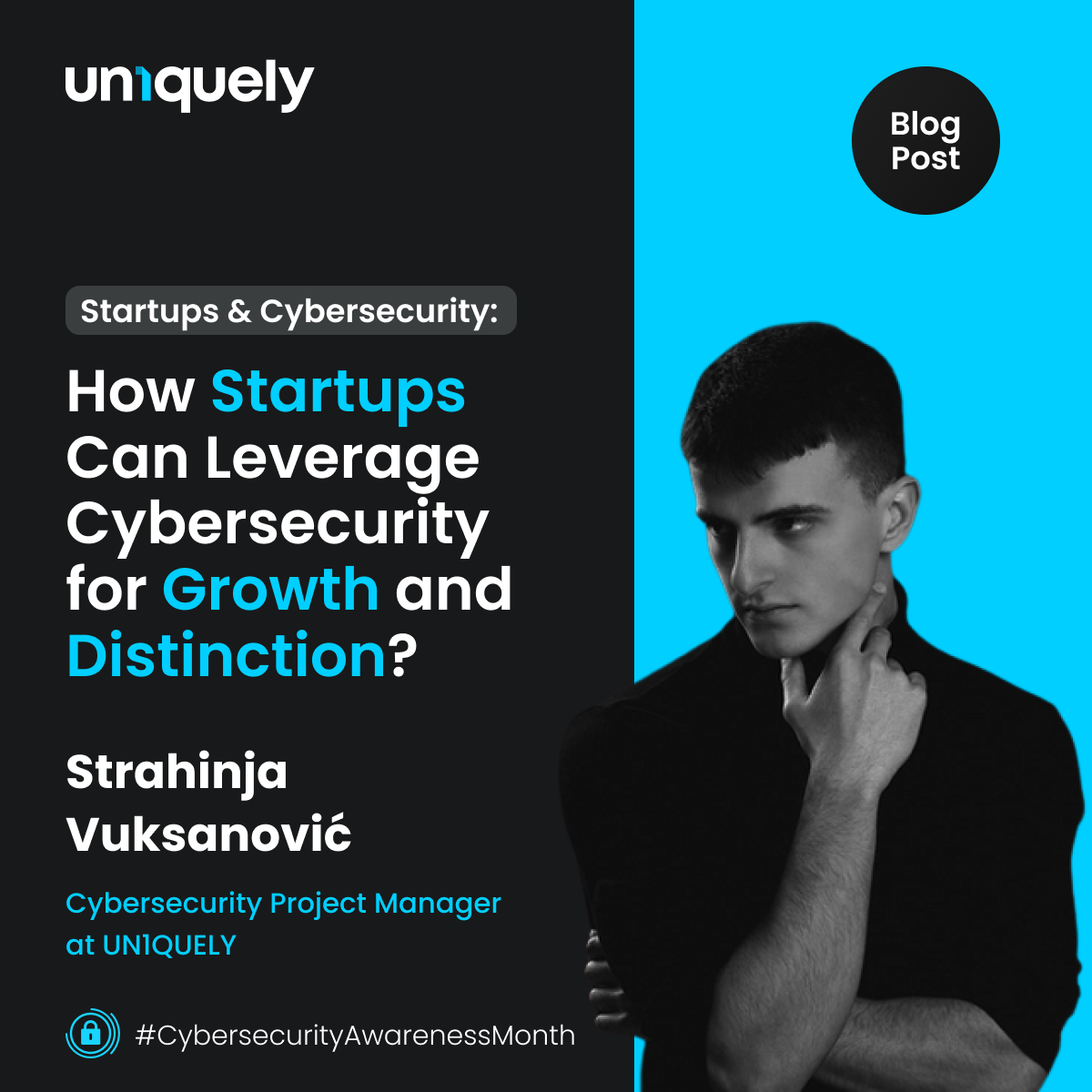Countless cybersecurity articles begin with this narrative:
In the fast-paced digital age, startups stand at the forefront of innovation. However, they also face the growing challenge of significant cyber threats. Such attacks can harm a brand’s reputation, disrupt operations, and cause serious financial losses.
While this is indisputably accurate and a prevalent viewpoint, today we’ll take a look at a less-explored perspective.
Transforming Cyber Threats into Competitive Triumphs
What if I told you that instead of viewing cybersecurity merely as a pressing threat or a financial drain, startups could embrace it as a unique competitive edge? Pivoting your mindset is the initial step to transforming cybersecurity from a cost center into a revenue generator. Consider a strategy that doesn’t just shield against potential threats but also attracts customers, builds strong partnerships, and positions you at the forefront of the growing movement for online safety.
With the cybersecurity revolution in full swing, startups possess a golden opportunity to lead the charge. In response to rapid technological advancements and evolving cyber threats, the global concern for data privacy is more than a fleeting trend. By emphasizing cybersecurity, startups not only demonstrate their commitment to safeguarding customer data but also attract security-conscious clientele.
Rather than complying with existing regulations, startups have the opportunity to distinguish themselves by excelling in cybersecurity. Viewing this not just as a precaution but as a strategic investment ensures robust protection and promises substantial long-term returns as the startup scales.
Start With Cybersecurity Without Breaking the Bank: Free Actionable Advice for Startups
- Start Simple with Effective Measures: Launching your cybersecurity foundation doesn’t have to be complex. By enabling 2FA on all company accounts and investing in regular training sessions for your team to identify phishing attacks, you preemptively counter over 90% of potential threats. For starters, here is a free online phishing training that you can use: Phishing Quiz. Remember, initiating a robust security protocol doesn’t always mean turning to expensive corporate tools; it’s about making wise and informed choices.
- Empower Through Knowledge: The strength of a team lies in its collective awareness. Make it a point to consistently equip your team with the knowledge they need to ward off common cybersecurity threats. When your team can swiftly spot and report phishing attempts or suspicious activities, you’ve created a first line of defense that’s hard to breach. Here is a link to a great blog post explaining how to create a culture of security.
- Utilize Password Managers for Enhanced Security: One of the most overlooked aspects of cybersecurity is the strength and security of passwords. With the sea of accounts and services we use daily, it’s a challenge to create and remember strong, unique passwords for each one. This is where password managers come into play. These tools not only securely store all your passwords but also help generate complex passwords that are hard to crack.With features that include a mix of alphanumeric characters, combinations of uppercase and lowercase letters, numbers, and symbols, they ensure that each password is robust. The added advantage? You only need to remember one master password to access all your accounts. This consolidates your security while simplifying access. Many reputed password managers are available today, with both free and paid versions catering to different needs. Adopting one can drastically elevate the security of your digital footprint. Here are some recommended password managers to use:
- Paid solutions:
- 1Password
- Free solutions:
- Browser built-in password managers
- Apple Keychain
-
- Chrome Password Manager
- Browser built-in password managers
- Paid solutions:
- Implement a Need-to-Know and Least-Privilege Access Policy: One effective way to mitigate internal risks is by regulating data access. Only provide data access to those who genuinely require it for their roles. Combine this with the least-privilege principle, which means granting users the minimum levels of access necessary to complete their tasks. Periodic reviews and adjustments to these permissions can drastically reduce vulnerabilities.
- Embrace IT and Data Hygiene: Beyond the high-tech tools and strategies, the foundation of cybersecurity lies in adhering to IT best practices. This means maintaining the integrity of your data, updating software promptly, and ensuring regular backups. Always prioritize installing the latest OS and browser updates, as these often address vulnerabilities in computers and smartphones. For data backup, it’s essential to use Time Machine for MacOS and perform Windows OS backups on external drives or cloud storage. Additionally, it’s vital to dedicate time to dive into trusted cybersecurity forums, ensuring you’re always informed and a step ahead of potential threats.
Embracing these cost-effective strategies can significantly improve a startup’s cybersecurity posture. It shows that strong security isn’t just about spending a lot of money, but about making smart choices. Start small, think big!
Conclusion
In the ever-evolving digital landscape, security goes beyond its traditional role as a mere shield; it emerges as a strategic force guiding startups toward enduring success. By integrating cybersecurity into their digital journey, startups not only strengthen their defenses against emerging threats but also establish themselves as both trustworthy and forward-thinking entities. Recognizing cybersecurity as more than just a defensive measure, but as a key strategic advantage, startups can protect their invaluable digital resources and gain a competitive edge in an era where trust and security are vital. By skillfully navigating the cyber realm, startups can transform cybersecurity from a mere necessity to a beacon of trust, marking it as a cornerstone of success in the digital world.
About Author:
Strahinja Vuksanović is a Cybersecurity Project Manager at UN1QUELY. He is deeply committed to expanding his knowledge in project management and business development strategies. Through his studies at the UN1QUELY Academy, Strahinja has acquired a profound understanding of cybersecurity, covering areas such as Information Security Management, Defensive Security Operations, and Offensive Security Operations. This knowledge has been instrumental in guiding him to lead projects within the cybersecurity domain. Strahinja diligently keeps up with industry trends, updates, and innovations, ensuring he remains at the forefront of his field.

